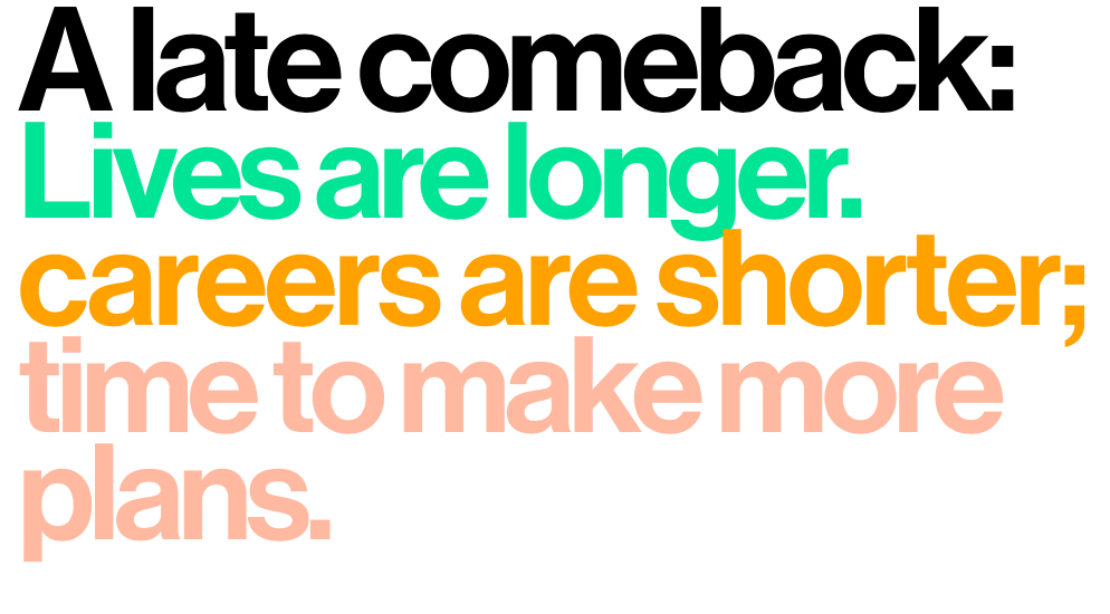
A late comeback
My father reinvented his life completely, not once, but twice. It wasn’t called reinvention in those days; generally something dramatic had to happen before someone gave up the security and the pension that came with endless years of service. But Dad’s first reinvention was indeed drastic.
He had grown up destined for the army: public school was followed by Sandhurst and then the Regiment. He would joke that his school taught him nothing but how to carve bread and pheasants – Sandhurst, however, he had loved. Born in 1917, he was a young officer when war broke out, in charge of a battalion at D-Day. There was a cock-up with intelligence reports and, although he was later exonerated, the damage had been done. In 1955 he left the army, facing civvy street with a wife, two young children and no qualifications at all.
He studied accountancy at night and by day worked at places like Selfridges where, for a short period, he sold sheets. Four years later, he was a company director with a pretty house and my sister and I were in ‘good schools’.
Now, in my 60s, I marvel at his guts and determination to create a successful new career and I derive huge pleasure from what he did next. At the age of 70, my mum five years dead, his finances secure, he decided to write a book about our ancestor, Captain Boycott – the English land agent who was ‘boycotted’ in Ireland in 1881, thus giving the language a new word and ensuring some dubious immortality for himself. For the next eight years, Dad roamed Ireland researching the story. We had a great party when the book came out and it received some very favourable reviews. He had now become a writer.
I think I can rightfully say that I grew up with the idea of personal reinvention, even if I didn’t start out by calling it that. My own life has not – until relatively recently – felt sufficiently organised and planned to deserve such a description.
Determination
I fell into my first job: a few weeks after dropping out of university, I met a young man who was working as the London Editor of Rolling Stone magazine. He had a friend who was editing a magazine called Friends, a small, underground paper with ramshackle offices at the north end of Portobello Road. He gave me a job. Some weeks we were paid, some we weren’t. Money didn’t seem to matter too much; I got the bug. Journalism in all its forms –reporting, writing, editing – was my dream job. It also, as I learned over the years, provided plenty of scope for changing tack, for pursuing varied interests while remaining in the same general sea.
In my 20s, I did change careers, but they were always under the media umbrella. I wrote, I edited, I worked for publications as wide-ranging as Spare Rib, Honey and an Arabic women's weekly in Kuwait. I didn't have any sense of reinvention per se. I was going from one thing to another without a plan and, even though I could later look back on that time and see that it provided huge and useful experience, it was done in a random way.
But about eight years ago, after editing three national newspapers, several magazines, doing TV and radio work, writing four books and contributing to a huge variety of newspapers and magazines, I wanted something different. Journalists often bemoan the fact that their job is writing about other people’s jobs, a fact which can make the journalist’s job feel less important. Now I wanted a ‘real’ job which was both interesting and worthwhile. The trouble was I had no idea how to get there, nor could I figure out what exactly that new job might be. I was in my mid-50s. I’d done practically every job there was in journalism and I’d had a brilliant time. It wasn’t that I didn’t want to carry on writing and broadcasting, it was more that I wanted to become a specialist in something as I felt I knew a little about a lot. Now I wanted to know a lot about a little.
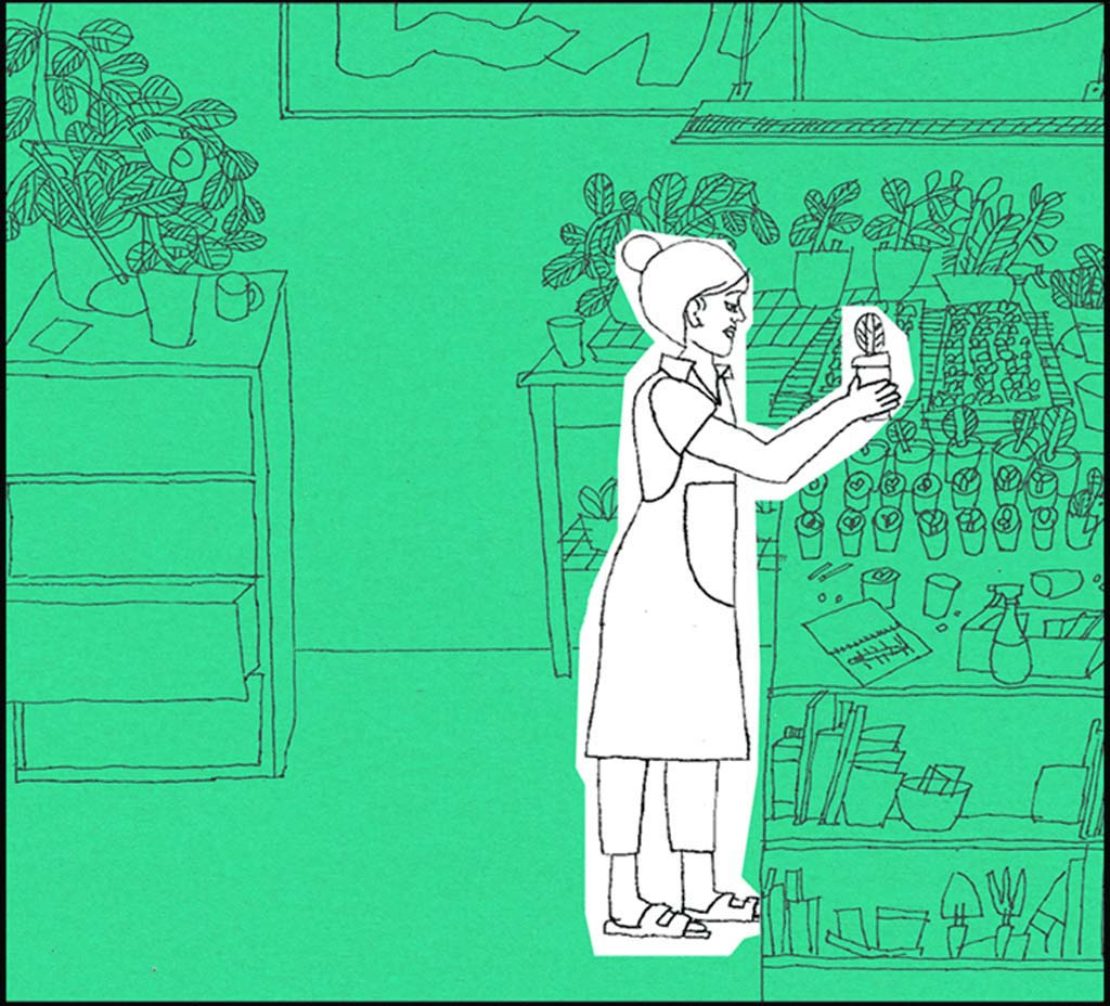
My husband, who is a lawyer, is also a manically keen gardener and, together, we started a small holding. It eventually went broke, but not before I’d developed a serious interest in food and its social and political importance. He urged me to study the subject and soon my bookshelves were groaning with obscure volumes about factory farming and food politics. Six years ago, a chance conversation led to a new path and a job as The Mayor of London’s Food Advisor.
There are many reasons why we reinvent ourselves, today more than ever. So-called ‘jobs for life’ are increasingly rare, while we’re also living longer and staying healthier. The idea of chucking in everything at the age of 60 or 65 has begun to seem pretty peculiar. Plus, of course, how many of us can afford to drop everything and live on a Saga cruise for the next 30 years? In some cases, like my dad’s, it’s forced on us because we get sacked or made redundant, but equally, many of us spend years working at jobs we don’t much like and then decide to push the boat out towards something that really is of interest. But that doesn’t mean reinvention is necessarily an easy thing to do.
In America reinventing has become big business: you can find coaches, gurus, self-help books, courses, seminars and mountains of online advice. It’s clear that Americans looking to ‘reinvent’ – or as some put it, ‘develop an encore career’ – all envisage work that is emotionally, mentally and spiritually fulfilling. The notion of retiring poor, or continuing to grind away at your current, hated, job, or of finding work that a teenager could do in their sleep, is not part of the plan.
Americans looking to ‘reinvent’ - or as some put it, ‘develop an encore career’ - all envisage work that is emotionally, mentally and spiritually fulfilling
Marc Freedman is the founder and CEO of Civic Ventures, a US non-profit research group focused on baby boomers. He points out that in 1900, average life expectancy in the USA was 49, now it is 77.9 and rising. It’s impossible not to agree with his assertion that we need a ‘new map of life’, as these figures render every financial, emotional and health assumption that we have lived with virtually useless.
We have, he says, ‘catastrophised’ the idea of old age, declaring that the older generation will bankrupt future generations, over-stretch healthcare systems and foster a generational war. But that doesn’t have to be the case. My generation, I believe, will live up to Freedman’s message of living older lives characterised by purpose and contribution, not the more parasitical retirement of yesteryear, when people spent the time between stopping work and the grave, eking out their lives on a slim pension, convinced it was society’s duty to take care of them. No one, certainly no one I know, thinks that is on the cards anymore. And few begrudge it.
Freedman points out that social shifts are nothing new. The concept of adolescence, as the transitional stage between childhood and adulthood, only began in the late 19th century when child labour laws prohibited children under 16 from working: this enabled children to stay in school, and lengthened their period of dependence on adults. The new demographic shifts are creating conditions for our ‘encore’ stage. Freedman says we should embrace this new era with all the enthusiasm with which we embraced our first jobs, which means retraining if necessary.
Compromise
Pensions were never designed to support us for up to 30 years: indeed when they were introduced, the life expectancy for men after retirement was just five years. Now it’s nearer 25 years. So, unless you’ve made a great deal of money in your working life or you're prepared to be very hard-up, the need to keep working for money can be an imperative.
Governments, Freedman suggests, should acknowledge such shifts and help workers by creating special savings accounts for those in transition. I like that idea but he fails to address the question of where the money might come from. Retraining will never be cheap and, as we currently have enough trouble funding basic primary education, this ‘second life’ stab at the text books sounds like a pipe dream.
Moreover, while reinvention is billed as enticing and life-enhancing, the demands can seem very challenging. At its heart, these modern notions of fulfilment can imply that you will have failed yourself unless you manage to find work that fully exploits all your passions and talents. Indeed, there is nothing wrong with sticking to one thing all through your life – if you get that lucky.
But no one wants to spend a lifetime doing a job they hate. I remember someone telling me, very early on in my career, that the secret to life was to be paid to do what you yourself would pay to do and I have always born that in mind when faced by new possibilities. For my dad, I believe his wish to write a book was fuelled by the desire to do one thing in his life that owed nothing to anyone and to do it as well as he was able. Although to the outside world it might have seemed as though Dad had had a successful life, following his hiccup with the army, I know for him it had felt like a compromise. He would say to me that he wished, given how things in the army had turned out, that he’d trained to be a doctor and become a surgeon. He had brilliantly steady hands and could make intricate and precise wooden furniture. But his years in the army and his need, in middle age, to make enough money to support his family, had ruled that out. The book was his chance at fulfilment.
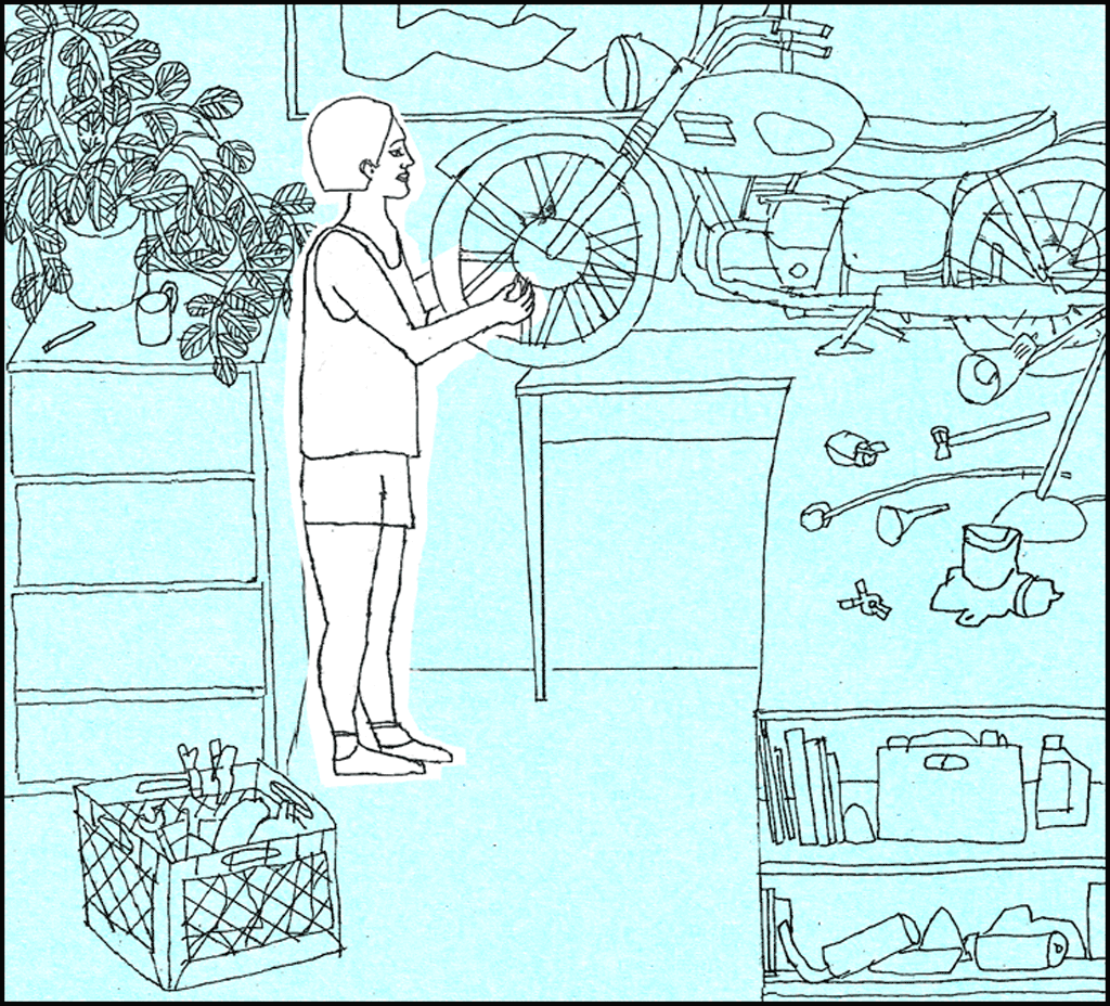
When I changed direction in 2001 after leaving the Daily Express, where I was editor, it was clear in my mind that I didn’t want a single, full-time job any more. I’d become aware of just how much it had taken out of me. It was hard to rediscover my sense of self when my life was no longer defined by the nine-to-five and the job title. It wasn’t about lowering my expectations, it was about getting realistic. I still wanted a job that I was hugely interested in, but I didn’t want it to take over my life.
Having one main focus and several other commitment suits me well now. I like not feeling as though I am a hostage to one all-encompassing job, and I like knowing that elements of my life could change without causing me too much grief. I am more secure and thus more able to explore a wide range of possibilities.
Of course, there will be people who sneer at the whole idea of reinvention, dismissing it as a middle-class fad, all very well for people with time and money who want to become potters in barns in the countryside. Perhaps that’s true for a few. But for the majority, the reasons for needing to reinvent will be more straightforward: to earn money and make the next 20 or 30 years meaningful and engaged.
My sister, who has lived in Denmark all her life and is a teacher, has just elected to go on working until she is 70. If she could go on till 75, she would. She is planning on opening a B&B when that finishes and possibly going back to university to take a third degree.
Branding
American reinvention coach Dorie Clark started out life as a journalist, got laid off and needed a plan B. She did, as she says in her videos, do ‘some cool things’. She made a film, worked on a presidential campaign, did some freelance journalism but, she says, unless you make it otherwise clear, people will continue to see you as you were in the past.
She understands that we – whether we like it or not – have a ‘personal brand’. It’s an expression that, I confess, makes me wince; it sounds so calculating and arrogant. No one likes the person who tells you, upon meeting, just how brilliant they are. But Dorie argues convincingly that defining your brand is actually about taking control of your life, figuring out who you want to be and how you want to get there. It is about setting your goals and then positioning yourself so they have a chance of coming good.
It is, I realise, very much what I did when I decided to reinvent myself into an expert on food. I worked hard, I started writing about it and – hey presto! – something rather fabulous happened. There is, after all, no point in having a skill if no one else knows about it.
The solution to an insecure future is to look at oneself as a small business; to jettison the concept of ‘I’ and start seeing ourselves as entities
You need to work not just at the job but, crucially, at getting the job. A friend of mine in her mid-40s was recently laid off from her high-tech company where she worked on sophisticated marketing campaigns. She's the main breadwinner of the household, so she needs to earn well. She understands the importance of image and how you are seen in the world.
“What I realised was that I needed to understand what my reputation was, what people might say about me when I left the room,” she told me. “What did they think I was good at? Or bad at? Or just didn’t know anything about? There’s no point in being good at something if people can’t see it and there’s no point in letting people think you're good at something if you’re either no good at it, or don’t want to do it.”
So she and another friend decided to embark on a ‘branding’ exercise: “It was a bit scary but rewarding. What we realised was that we both had a range of skills that could be ‘repackaged’ and put ‘back out to market’, as one might reposition a great product that needs rebranding for a new generation of users. We have to do the same for ourselves.”
Clark says that we often don’t realise how others see us, citing an example of an executive coach who was shocked to hear his colleagues thought he was arrogant. When he got nervous, he'd interrupt to put his own point view, which convinced others he felt superior.
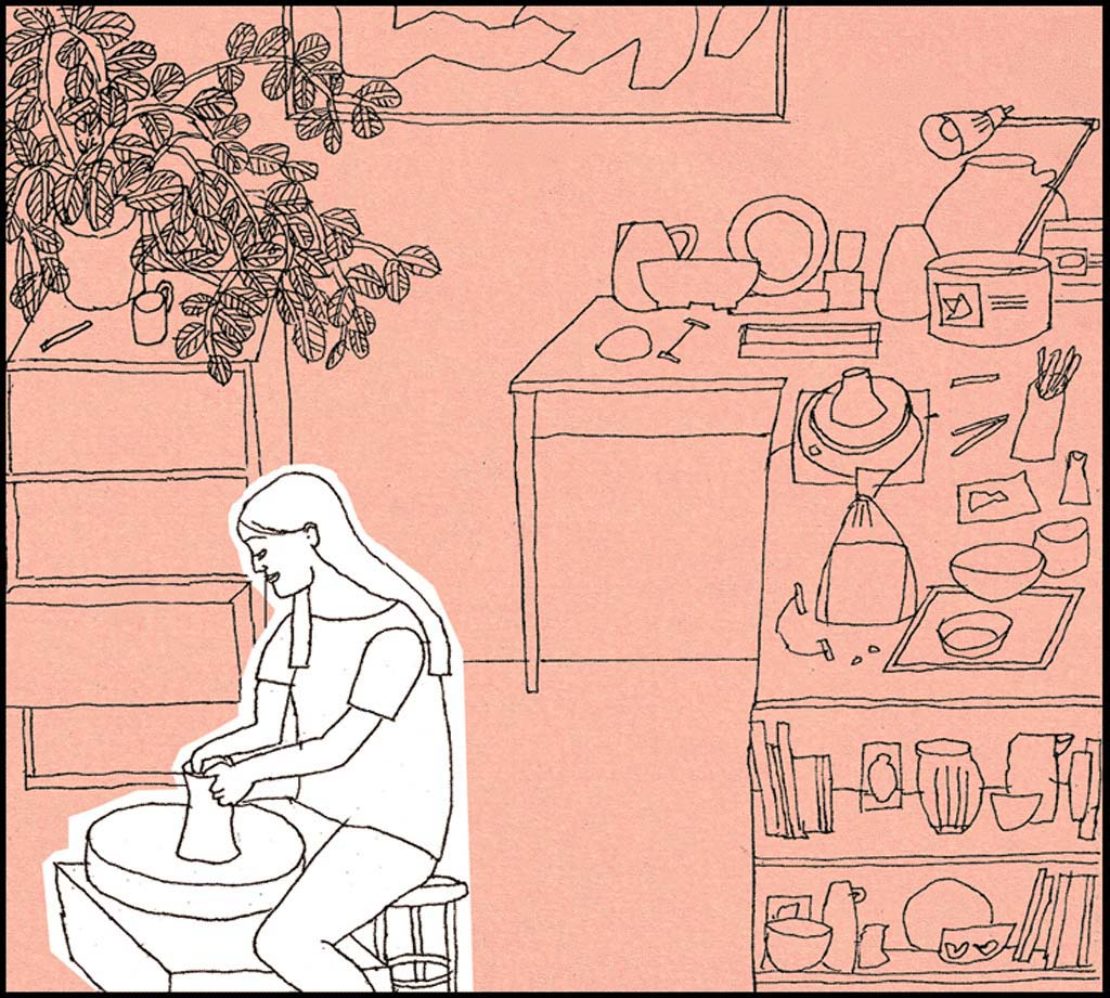
Clark suggests that you can ‘interview yourself’ in an attempt to see how others may perceive you. These are the questions she proposes: What three words would you use to describe yourself? You’re trying to go from A to B, what are the steps? Who do you know who is doing what you want to and what do they have that you don’t have? Clark goes on to suggest that you should organise a focus group to really try and hone your skill-set.
Personal brands can seem very un-British – before we even get to personal focus groups! It’s too close to showing off for our national psyche to be comfortable with, but unless we get to grips with it, our reinventions may not be as successful as they could be. In The Start Up of You, LinkedIn co-founder Reid Hoffman and writer Ben Casnocha argue that we need to manage our careers as if they were start-ups. The solution to an insecure future, they say, is to look at oneself as a small business; to jettison the concept of ‘I’ and start seeing ourselves as entities.
It sounds weird but, leaving aside reservations, I retrospectively applied this concept to my life and realised it made a certain sense: I’d invested in myself by learning something new. I then built a new network of people to engage with. And I took some risks.
Granted, during that period of change I didn’t look at myself quite so objectively as Hoffman, Casnocha and Clark propose but, like many, I wrote a CV, I worked out what I liked and what I could, possibly, do with those elements. So while we may cringe or bristle at the idea of a personal brand, it is a process worth going through – and, in fact, it’s one we go through whether we label it so or not.
Reinvention
Last year an American study sponsored by MetLife Foundation and Civic Ventures suggested that between 5 and 9m people aged 44 to 70 have already embarked on second – or third – careers. Many want to put their experience towards working for the greater good. Many millions more according to the study are interested in joining them, adding to their list of what they are seeking in a job an element of personal meaning and a connection to something larger than themselves.
In Britain, record numbers of the over-65s are now working: 840,000 at the last count. Most, say Saga magazine, are working to earn extra money, but some are going on – or changing to a new job – because they feel it is too soon to settle for the garden or the sofa. In the USA, the computer chip giant Intel began offering employees one-year fellowships which promise a $25,000 stipend, a placement with a high-performing, non-profit organisation, and a stepping-stone to a new career that redeploys immense business and technical skills.
As the baby boomer generation, of which I am a part, heads towards retirement, I expect there will be huge changes ahead in terms of age and our working patterns. It’s not just that our pensions won’t provide enough for us to live on, it’s also that we’re not going to just stand by and stop playing an active role in the world.
In an episode of the BBC spin-off Young Apprentice, Alan Sugar takes a group of bright-eyed 16- and 17-year-olds to the Natural History Museum where, under the shadow of a dinosaur skeleton, he tells his young audience that the over-50s have lots of money and leisure time. They spend, he informs them gleefully, over £260 billion a year.
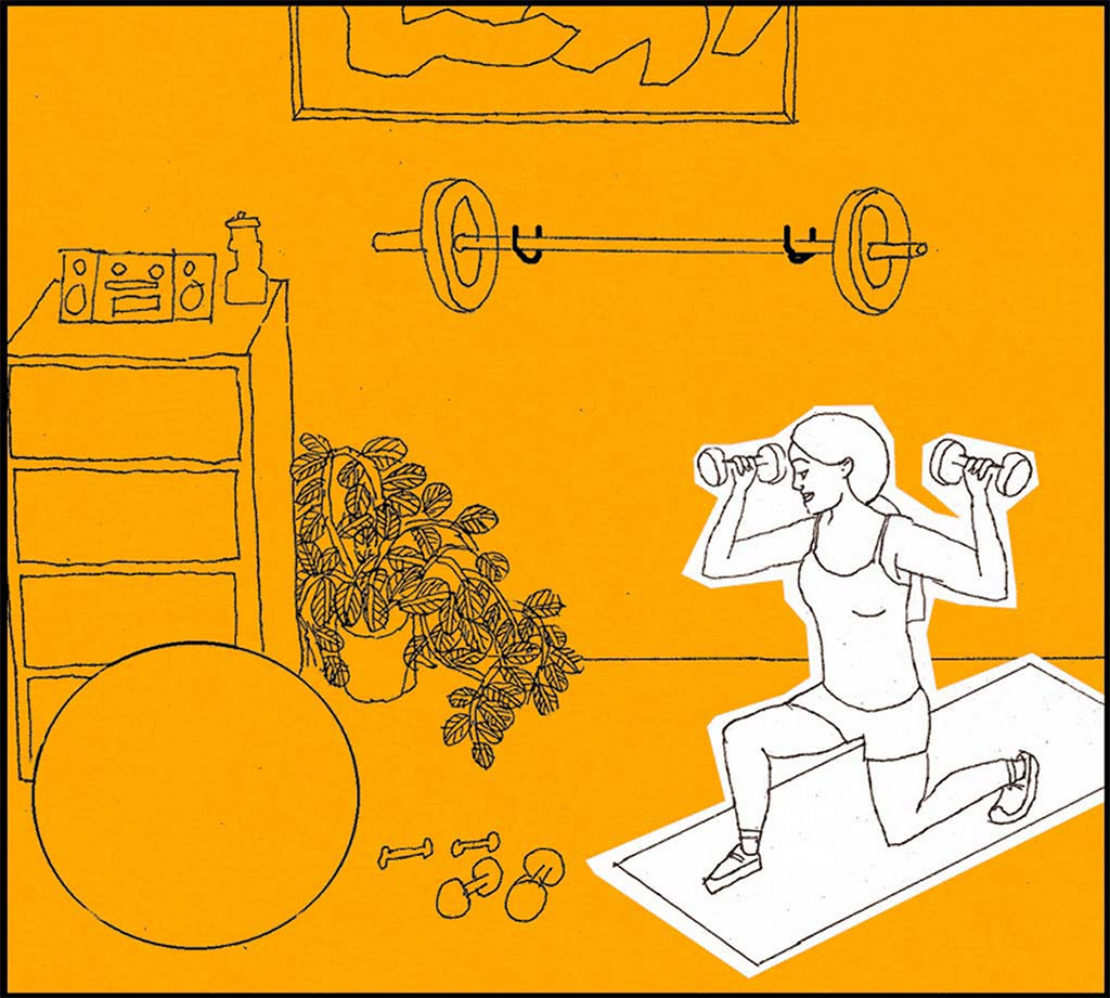
What he doesn’t tell them is that the middle aged and the old are now after their jobs too. Far from retiring into a world of catalogue buying from an armchair, they’re signing up to be apprentices themselves. 34,000 people over 50 started apprenticeships last year and more than a third are finding jobs in business, law and administration.
My life today is what I guess someone would call a ‘portfolio’ career. And when I look around me, I realise that many of my contemporaries work on a whole range of interrelated yet independently funded projects too. Being open to opportunity as you get older is one of the biggest hurdles. Many people get ‘set in their ways’ as the clock ticks forwards, but the world requires the opposite mindset. Adaptability, flexibility and agility are all key to reinvention.